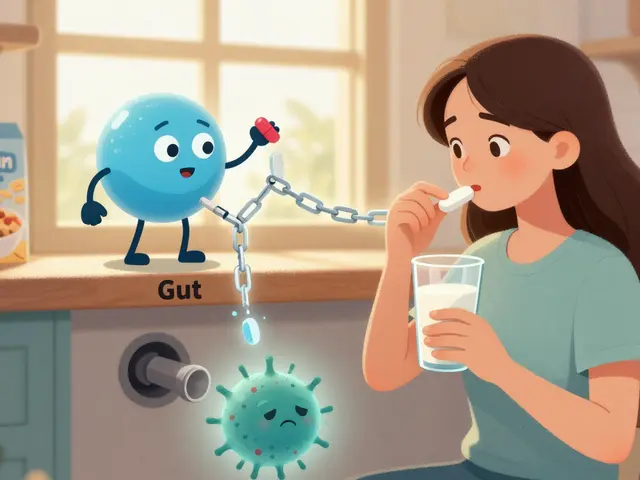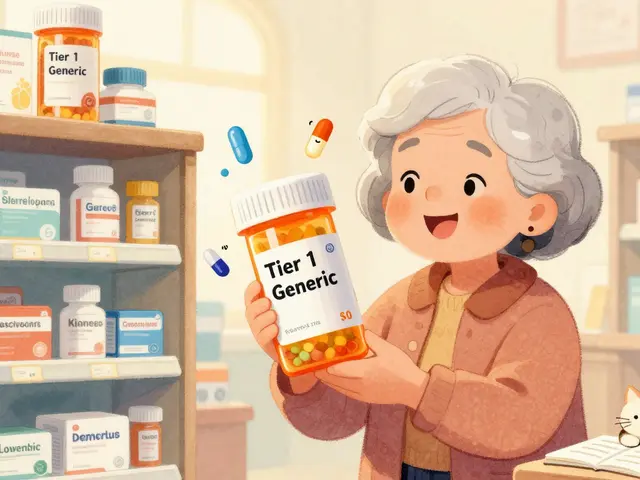
Generic Antidepressant Guide: Types, Uses, and Tips
When talking about generic antidepressant, a non‑brand medication that contains the same active ingredient as its branded counterpart. Also known as off‑brand antidepressant, it offers the same therapeutic effect at a lower cost. Generic antidepressants cover several drug families that doctors rely on to treat depression. Common classes include SSRIs, Selective Serotonin Reuptake Inhibitors that boost serotonin levels, SNRIs, Serotonin‑Norepinephrine Reuptake Inhibitors that affect both serotonin and norepinephrine, and TCAs, Tricyclic Antidepressants that work on multiple neurotransmitters. Each class has its own side‑effect profile, dosing range, and interaction risks, so understanding the differences helps you and your clinician pick the best fit for your situation.
How to Choose the Right Generic Antidepressant
Picking a medication isn’t just about price; it’s about matching the drug’s properties to your symptoms and lifestyle. SSRIs are often first‑line because they tend to cause fewer severe side effects and are easy to start at low doses. SNRIs can be a better match if you also struggle with pain or low energy, thanks to their dual action on norepinephrine. TCAs, while effective, usually require careful monitoring due to a higher chance of dry mouth, constipation, and cardiac effects. When you compare options, ask yourself: Do I need a quick‑acting option? Am I sensitive to weight gain or sexual side effects? How will the drug interact with any other meds I’m taking? Your doctor will consider these questions, your medical history, and any previous medication trials. Starting dose, titration speed, and the need for regular blood work are all part of the equation, and they vary by class.
Once you’re on a generic antidepressant, the next step is staying on top of how it works for you. Most people notice mood improvement within two to four weeks, but full benefits can take up to eight weeks. Keep a simple log of mood, sleep, appetite, and any side effects; this data guides dose adjustments or a switch to another class if needed. Remember that abrupt discontinuation can cause withdrawal symptoms, so always taper under medical guidance. Combining medication with therapy, regular exercise, and a balanced diet often yields the best outcomes. Below you’ll find a curated list of articles that dive deeper into each class, safety tips, and real‑world advice for managing depression with generic options.
-
25 Sep







